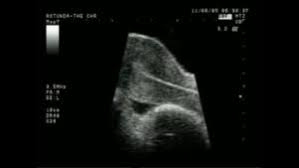Segmented IVF is a process of segregating the procedures of egg collection and embryo transfer, both of which are performed in a single cycle in conventional IVF. In between the first cycle of treatment and embryo implantation, the Segmented IVF process allows one to recover. In segmented IVF cycles, the transfer of embryo is not exercised in the fresh stimulated cycle.
Table of Content:
1. What is Segmented IVF?
2. How is it performed?
3. What embryologist thinks?
4. Views of Dr Goral Gandhi on Segmented IVF
5. How effective is Segmented IVF?
What is Segmented IVF?
Segmented IVF is a process of segregating the procedures of egg collection and embryo transfer, both of which are performed in a single cycle in conventional IVF. In between the first cycle of treatment and embryo implantation, the Segmented IVF process allows one to recover. In segmented IVF cycles, the transfer of embryo is not exercised in the fresh stimulated cycle.
How is it performed?
During this period, a patient undergoes monitored stimulation to produce multiple eggs in her ovaries. When the eggs reach the desirable size, they are collected through a small operation. These eggs will subsequently go through the process of fertilization to form embryos that will be frozen in the next stage. The freezing is done using a new, cutting edge technology called Vitrification.
What IVF expert thinks about Segmented IVF?
Several globally-renowned IVF experts have praised the idea of Segmented IVF. In various countries such as UK, India, USA, Japan, etc., it has been flourishing with a good pace. Segmented IVF has been instrumental in raising trust among couples when it comes to conceiving through In vitro fertilization.
Views of Dr Goral Gandhi on Segmented IVF
“Segmentation in IVF, over the years, has dealt with conventional IVF’s limitations including the risk of Ovarian Hyper-stimulation Syndrome (OHSS) and over/under-stimulation of endometrial development. However, the cornerstone of success of Segmented IVF is a highly efficient and effective freezing program using Vitrification,” said Goral Gandhi while highlighting the effectiveness of Segmented IVF in medical fertility treatments.
Goral Gandhi IVF consultant is a Clinical Embryologist with over 25 years of experience in the field of IVF and Assisted Reproductive Techniques. She was the Laboratory Director at Rotunda – Center for Human Reproduction from January 2000 to January 2017 and is currently serving as the Scientific and Laboratory Director at Indo Nippon IVF Bandra Mumbai. She also stands as one of India’s leading embryologist and IVF trainer while having an intensive and extremely extensive experience in embryology, the science of ART and IVF. Moreover, Goral Gandhi has further been a much-admired Clinical Embryologist while having expertise in IVF, ICSI, Donor egg IVF, Surrogacy, Frozen embryo transfer, Egg freezing, Segmented IVF.
Goral Gandhi has founded The International School for Reproductive Medicine and Embryology (ISRME) where she has trained aspirants in the field of assisted reproduction. Founded by her, ISRME contributes globally in providing ART training’s to IVF Clinicians and Embryologists. Goral has vast experience in providing education in the field of IVF and carrying out lectures, seminars, training’s and workshops since the year 2000 throughout the country. The ISRME Team has been commendable in teaching and training clinicians and scientist who are now expert IVF consultants and embryologists across the globe.
Goral Gandhi earned her master’s in Applied Biology from the King Edward Memorial Hospital, University of Mumbai, for her research work on “Quality Control in Laboratories”.
Ms. Gandhi spent a part of her research period at the quality control laboratory, Hammersmith Hospital, UK.
She subsequently served as a Research Fellow at the In-Vitro Fertilization Laboratory of the University Hospital, Belgium and Egyptian IVF Centre, Cairo, where she gained extensive experience in all ART techniques and Laboratory management.
Throughout her career, Goral Gandhi has been actively involved in clinical research in embryology. Her research activities are geared towards developing innovative culture and cryopreservation methodologies to improve clinical pregnancy outcomes. Her research projects are focused on egg and embryo vitrification, single sperm cryopreservation, blastocyst cultures, embryo growth and selection, and gamete/embryo micromanipulation.
Having trained at the Kato Ladies Clinic, Japan for vitrification of embryo and oocyte, her passion is vitrification. Egg Banking and Fertility Preservation is a project close to her heart and she has introduced highly successful Fertility Preservation Program at many ART centers.
How effective is Segmented IVF?
According to a 2015 study by the Washington-based Bellingham IVF and Infertility Care, pregnancy rate has seen a 5-8% increase during 2013-15, thanks to the advancement of In vitro fertilization to Segmented IVF. This new development has not only discovered a more precise way of conceiving a child but also given a major technical boost to the IVF sphere across the world.





